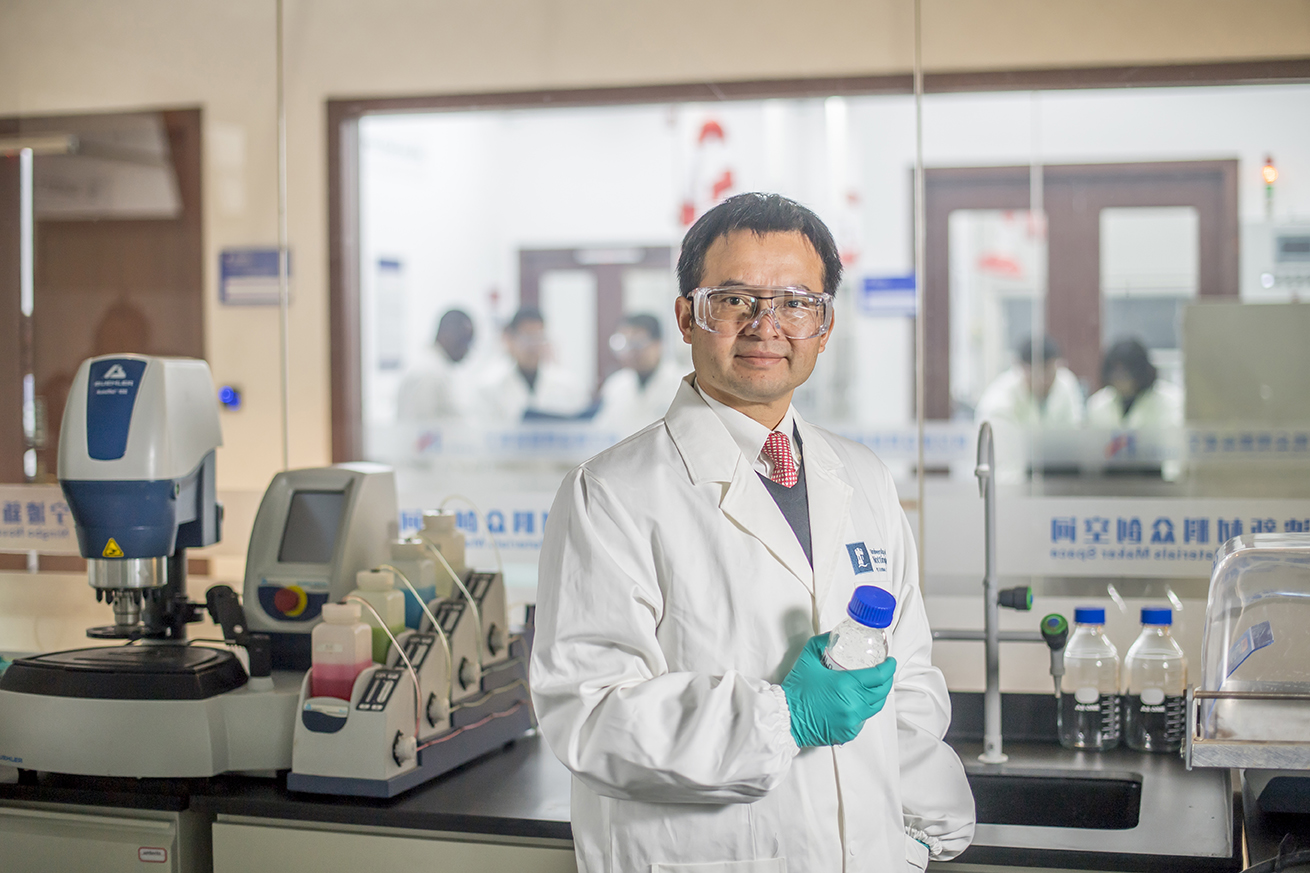
April 23, 2018, by Sophie Moyses
Reducing pollution: Professor Tao Wu
Professor Tao Wu, Dean of the Faculty of Science and Engineering and Professor of Chemical Engineering at our Ningbo Campus China talks about his research into tackling air pollution to ensure a sustainable future.
How would you explain your research?
China has historically been a heavy user of coal, which generates a lot of air pollution. We are developing new technologies to improve air and water quality. We are currently involved in two major research and development projects, one is to develop the biggest gasification plant of its kind in the world, using both coal and biomass. The second is to pioneer fine particulates and heavy metal removal from Chinese coal-fired power stations, leading to ultra-low fuel emissions.
What challenges are you hoping to tackle?
In China we burn a few billion tonnes of coal each year; that causes the air to be heavily polluted, which has a detrimental effect on public health and the environment. The research we are doing will contribute to addressing air quality issues not only in China, but also globally. Countries such as India, Brazil, Indonesia and South Africa are also dependent on the coal industry for their power production, which needs to change if we are to tackle climate change and pollution-related health problems.
Why is collaboration important?
Research collaboration is very important nowadays; we want to have a major impact in China and by participating in large-scale projects – such as those funded by the Ministry of Science and Technology – it allows us to have a positive impact on Chinese industries. We also frequently work alongside other prestigious academic institutions, such as Zhejiang University and large state-owned companies, including China HuaNeng, one of the largest power companies in China. Joining forces in this way offers us better access to industrial resources, new academic insights and provides our students with a well-rounded learning experience.
How has the University of Nottingham Ningbo China supported your research?
I was one of the first researchers in the Science and Engineering Faculty at UNNC, a time when the University had just started to build up its research capacity here in Ningbo. I received a lot of support from the University in the form of investment, facilities, PhD scholarships and physical space to complete my work. I was provided with everything I needed.
What can students expect when they come to the University of Nottingham Ningbo China?
When students come to UNNC to study, they can enjoy a British style education; we offer identical programmes to Nottingham. All our programmes are accredited by British professional institutes such as IChemE and ICE etc. Our teaching is delivered by an international team, and what’s more, students have the opportunity to experience Chinese culture first-hand.

In Brazil, a few million tons of pollution are dumped into the atmosphere every day. I imagine that if for us that we have “the lung of the world” (Amazon) in our territory, what to expect from other countries that do not have this privilege.